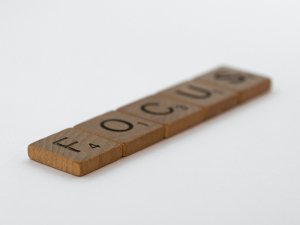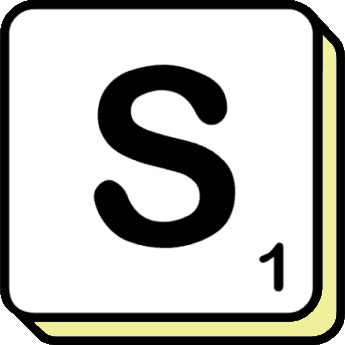A History of Word Games
Author: Brian Bowman
Date Published: 26 September 2023
Word games have entertained and challenged individuals across cultures and generations, serving as a testament to humanity's fascination with language and intellect. From ancient civilizations to modern digital platforms, word games have evolved, adapted, and captivated players with their linguistic puzzles. In this comprehensive exploration, we delve into the captivating history of word games, tracing their origins, transformations, and enduring appeal throughout time.

Ancient Origins
Word games can trace their roots back to ancient civilizations. In ancient Egypt, the game of Senet, dating back over 5,000 years, featured a board with squares containing hieroglyphic symbols. Players would move their pieces and select symbols that represented words or concepts. Similarly, the Chinese game of "Go" involved players placing tiles with Chinese characters, creating word formations and strategic patterns. These early games combined language, strategy, and competition, setting the stage for the development of more sophisticated word games in the future.
Riddles and Puzzles
Riddles and puzzles have been popular word games throughout history. In ancient Greece, the riddle of the Sphinx posed a linguistic challenge to those who sought to enter the city of Thebes. Riddles, which required clever wordplay and lateral thinking, became a form of entertainment and intellectual exercise in cultures worldwide. Additionally, medieval Europe saw the rise of word puzzles like anagrams and acrostics, where letters or words were rearranged to reveal hidden messages or phrases. These early word puzzles provided mental stimulation and amusement for both individuals and social gatherings.
Word Games in Literature
Throughout history, literature has featured word games that engage readers and challenge their linguistic abilities. In Geoffrey Chaucer's "The Canterbury Tales," for example, the characters engage in wordplay, puns, and witty exchanges, showcasing the use of language as a source of entertainment and social interaction. Shakespeare, renowned for his linguistic prowess, employed wordplay and clever puns in his plays, inviting audiences to appreciate the complexities of language while enjoying the drama. These literary works embedded word games within storytelling, emphasizing the interplay between language, literature, and intellectual engagement.
Board Games
The advent of board games in the 20th century brought about the emergence of popular word games still cherished today. Scrabble, introduced in 1938, revolutionized the genre. Players strategically arrange letter tiles to form words on a game board, earning points based on the letters' values. Scrabble's success led to various language-specific adaptations worldwide, enabling players to engage in competitive wordplay while expanding their vocabularies. Other notable board games include Boggle, where players search for words within a grid of letters, and Upwords, which allows players to stack tiles to form new words on the board.
Crosswords and Word Searches
Crossword puzzles, a staple of newspapers and puzzle books, originated in the late 19th century. The first crossword, created by Arthur Wynne, appeared in the New York World newspaper in 1913. Crosswords challenge players to fill in word grids by solving clues that lead to intersecting words. The popularity of crosswords skyrocketed, prompting the creation of specialized crossword puzzle publications. Similarly, word searches gained popularity in the 1960s, featuring grids of letters with hidden words to be found horizontally, vertically, or diagonally. These puzzles provided a delightful challenge and a playful way to enhance vocabulary and mental agility.
Digital Word Games
The digital revolution brought word games to new heights. With the advent of personal computers, consoles, and mobile devices, word games became accessible to a wider audience. Digital platforms like Words With Friends, introduced in 2009, allowed players to compete in word games with friends and opponents from around the world, blending the traditional gameplay of Scrabble with the convenience and connectivity of online platforms. Mobile applications like WordBrain and Word Cookies offered engaging and addictive word puzzles that could be played on the go, captivating players with their clever word challenges and increasing levels of difficulty. These digital word games not only provided entertainment but also fostered a sense of community as players connected and competed in virtual word battles.
Educational Word Games
Word games have also found their place in educational settings, serving as effective tools for language learning and development. Educational games like "Hangman" and "Word Bingo" engage students in interactive word exploration, helping them improve spelling, vocabulary, and language comprehension. Additionally, word games have been incorporated into language curricula, with teachers using word puzzles, anagrams, and vocabulary-building exercises to make learning engaging and enjoyable.
Word Games in Pop Culture
Word games have permeated popular culture, making appearances in various forms of media. Television shows like "Wheel of Fortune" and "Jeopardy!" have brought word puzzles and trivia challenges into living rooms, captivating audiences with their engaging gameplay. Crossword puzzles feature prominently in newspapers and magazines, providing a daily dose of mental stimulation for millions of enthusiasts. Furthermore, online platforms and social media have given rise to word challenges, such as "Word of the Day" competitions or word association games, where participants test their vocabulary skills and compete for recognition.
Modern Innovations
As technology continues to advance, word games evolve and adapt to new mediums. Virtual reality (VR) and augmented reality (AR) technologies offer immersive word game experiences, allowing players to interact with words and puzzles in innovative ways. AI-powered word games provide intelligent opponents and adaptive gameplay, offering players personalized challenges and feedback. Additionally, voice-activated assistants and smart speakers have introduced interactive word games, quizzes, and language-learning experiences into our homes, making word games even more accessible and engaging.
Conclusion
The history of word games is a testament to humanity's enduring fascination with language, intellect, and playful competition. From ancient civilizations to the digital era, word games have evolved, adapting to different mediums while retaining their core purpose of challenging and expanding our linguistic abilities. Whether through ancient riddles, board games, crosswords, digital platforms, or educational tools, word games continue to captivate individuals of all ages, providing entertainment, mental stimulation, and opportunities for learning and growth. As we look to the future, it is certain that word games will continue to evolve, incorporating new technologies and innovations, while remaining a timeless source of linguistic exploration and enjoyment. So, embrace the challenge, sharpen your vocabulary, and embark on a linguistic adventure through the fascinating world of word games.
